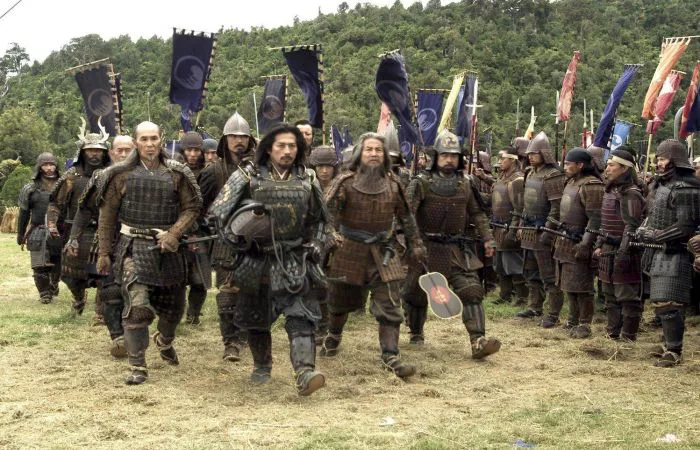Captain Nathan Algren’s decision to join the samurai in “The Last Samurai” is a pivotal moment in the film, symbolizing his profound transformation and alignment with principles of honor, loyalty, and cultural identity. Algren’s journey from disillusionment to solidarity with the samurai reflects complex motivations and personal growth. Let’s delve into the reasons why Algren ultimately chooses to join the samurai and fight alongside them against the forces of modernization.
Ethical Awakening and Moral Clarity
Resonance with Bushido: Algren becomes deeply influenced by bushido, the samurai code of honor, which emphasizes principles of courage, integrity, and selflessness. His encounters with Katsumoto and other samurai leaders resonate with his innate sense of morality and desire for redemption.
Rejection of Imperial Forces: Algren witnesses the ruthlessness of the Imperial Japanese Army and their disregard for human life, prompting him to question the legitimacy of his role as a military advisor. He rejects the exploitation of modern weaponry and tactics against the samurai, aligning himself with their cause.
Emotional Bonding and Personal Connection
Relationship with Taka: Algren’s burgeoning romance with Taka, the widow of a samurai he killed, deepens his emotional investment in the samurai’s struggle. His love for Taka symbolizes a desire for reconciliation and personal redemption, motivating him to fight for a future that honors the samurai’s legacy.
Fatherly Bond with Nobutada: Algren develops a paternal bond with Nobutada, Katsumoto’s son and protege, whom he mentors in martial arts and philosophy. His relationship with Nobutada strengthens his commitment to the samurai’s cause and instills a sense of responsibility.
Sense of Honor and Integrity
Respect for Samurai Values: Algren gains a profound respect for samurai values and traditions, recognizing their unwavering dedication to honor and duty. His alignment with the samurai reflects a desire to uphold these principles in the face of cultural assimilation and modernization.
Rejection of Exploitation: Algren’s moral integrity compels him to reject the exploitation of samurai traditions by the Imperial Army and advocate for a more equitable and respectful approach towards Japan’s cultural heritage.
Personal Redemption and Self-Sacrifice
Seeking Redemption: Algren views his alliance with the samurai as an opportunity for personal redemption, seeking to atone for his past actions and find inner peace. His decision to join them signifies a transformative journey towards self-forgiveness and spiritual growth.
Selfless Sacrifice: Algren’s choice to fight alongside the samurai reflects a selfless commitment to their cause, transcending individual interests for the collective good. His willingness to risk his life demonstrates the depth of his newfound allegiance.
Confrontation with Imperial Forces
Defiance of Tyranny: Algren’s decision to confront the Imperial Army embodies a broader resistance against tyranny and oppression. His actions symbolize a stand against unchecked modernization and cultural erasure, advocating for a more nuanced and respectful approach to Japan’s heritage.
Legacy of Courage: Algren’s legacy as a samurai ally represents a testament to courage, solidarity, and cultural preservation. His actions inspire others to embrace the samurai’s ethos and honor their memory.
Conclusion
In conclusion, Captain Nathan Algren’s choice to join the samurai in “The Last Samurai” encapsulates a profound journey of ethical awakening, emotional bonding, and personal redemption. Algren’s alignment with samurai values reflects a quest for moral clarity and cultural integrity amidst historical upheaval. Through his transformation, Algren embodies the film’s themes of honor, resilience, and the enduring legacy of Japan’s feudal past. His decision to fight alongside the samurai underscores the transformative power of empathy, solidarity, and the pursuit of justice in the face of adversity.
Related Topcis:
The Last Samurai – Warfare between the New and the Old

